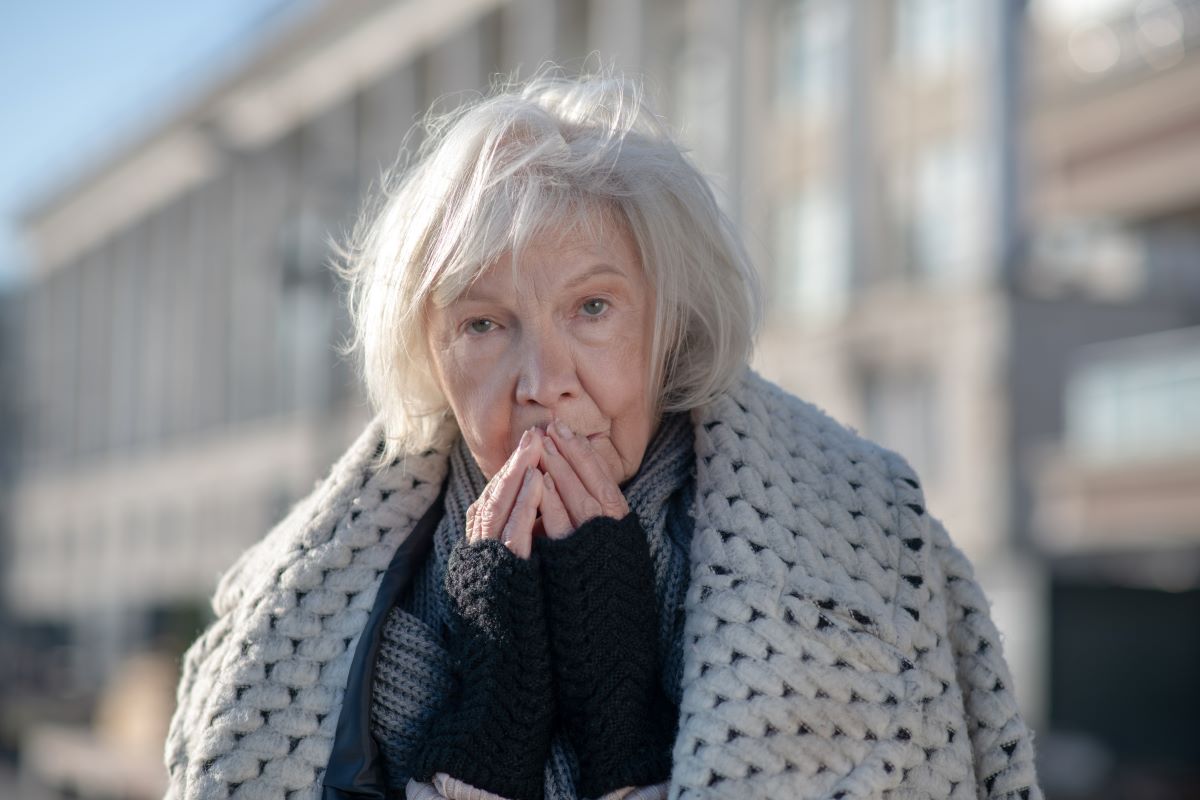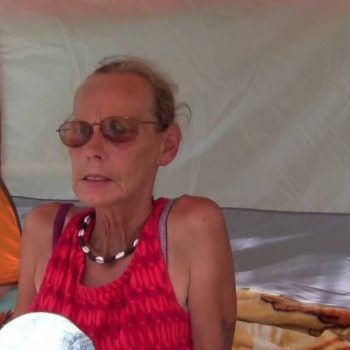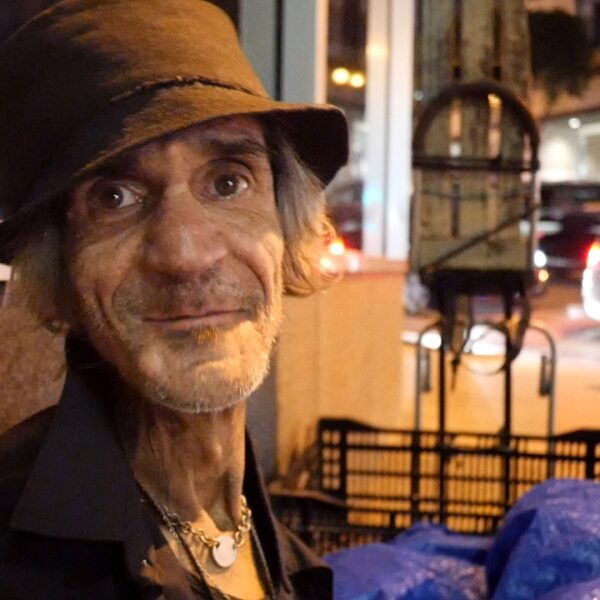The City of Philadelphia is warning that a massive increase in homeless seniors is on the horizon. This crisis is due, in large part, to the fact that senior poverty has reached its highest level in 5 years. The streets are no place for anyone, especially senior citizens.
“Can I find, in this affordable housing, a $700 apartment that includes utilities? No! I cannot,” said 61-year-old Eileen, who stopped to talk to Invisible People reporters about why she’s homeless in Pennsylvania.
Eileen went on to explain that even if she managed to find a rental unit in the $700 a month price range and get approved for it (a daunting task in itself for a visibly homeless individual), she would then only have $300 a month left from her social security funding to spend on other needs like food, clothing, hygiene products, and utilities.
This is a growing problem as senior poverty sweeps over the state of Pennsylvania in major metropolitan places like Philadelphia and Harrisburg.
“I have found, here in Harrisburg, I can’t find a room that isn’t gonna cost me $600 or $700 a month,” Eileen continued.
This is the portrait of aging in the United States, where the wealth gap continues to widen beyond belief.
Poverty and Displacement: The Tribulations of Becoming a Senior in the City of Brotherly Love
A retired Philadelphian’s average social security payment is a dismal $1,630 per month. Meanwhile, skyrocketing Philly rental rates average approximately $2,000 per month for a one-bedroom unit without utilities. When these statistics are combined, the only possible answer is an increase in senior homelessness.
Compounding the crisis, many Pennsylvania state retirees struggle to make ends meet on fixed, stagnant pensions. Those who retired before 2001 are attempting to survive on less than $15,000 a year, in most cases, amidst a 77% cumulative price increase driven by inflation.
Want to put a face on these struggling seniors who cannot even afford to rent a room in someone else’s house? They are the former grade school teachers and public sector employees we love to brag about.
Verbally tipping these seniors while leaving them out on the formidable city streets is a slap in the face to educators and the people who’ve dedicated their lives to making an honest living.
At this rate, Philadelphia seniors over the age of 65 account for approximately 13% of all the people living in poverty citywide. Meanwhile, the number of homeless seniors in the city’s shelter system is anticipated to double in just half a decade.
By 2030, the rise in senior homelessness will be virtually untenable. But this isn’t just about the data. It’s also about the conditions; the strain under which our aging neighbors are forced to live adversely affects us all.
Seniors Are Even Less Equipped to Deal with Homelessness than Our Nation’s Youth
The city streets and shelter systems are unfit for all human beings to reside.
In summer, scorching heats sweep out over the sidewalks, creating funnels of hot pockets called the “Urban Heat Island Effect.” Certain sections of Philly are now at least 10 degrees hotter due to architectural errors that caused this phenomenon.
Winter snows, spring showers, and fall storms pose dangerous threats to unsheltered senior citizens whose bodies are much less equipped to endure these weather extremes than younger members of the unhoused community.
The loss of health insurance and vital identifying documents tend to accompany homelessness. This means that unhoused seniors are less likely to visit their primary care physicians regularly and more likely to die from treatable ailments.
Their fragility also makes them more vulnerable to violent acts committed against them, such as:
- Robbery
- Rape
- Assault
- Murder
The shelter system is a notorious breeding ground for violence and diseases. Residents in shelters all across America have complained about horrific conditions, including:
- Mold
- Overcrowding
- No heat
- Rodent infestations
- Cases of extreme violence that are sometimes fatal and more
In conclusion, individuals over the age of 55 are already experiencing a natural decline in health that puts them at greater risk of being victimized, falling ill, or simply falling down.
Adding homelessness and poverty to the mix is a recipe for disaster and one that will continue to overburden our hospitals, overflow along our city’s sidewalks, and cripple our current social system. Is this how we wish to treat the humans who once taught in our schoolrooms, the people who dedicated their lives to public service, and those who have run into burning buildings to save others from being engulfed in flames?
Aging Out of the Workforce Should Not Mean Graduating into Homelessness. Talk To Your Legislators.
Aging out of the workforce should mean finally relaxing and spending time with loved ones. It should mean taking the trips you always dreamed of and making the memories you were once too preoccupied with working to create. It should not mean spending those final years in a cardboard box or a pallet shelter the size of a prison cell.
Is this the future you envisioned? One where former educators die in outdoor prisons with no bars, too poor to afford shelter?
Urban senior homelessness in Philadelphia’s metropolitan environment poses an elongated list of unique threats to everyone. It is time to discuss this with your local legislators before the number of seniors in our shelter system doubles or even triples, as has been projected.













